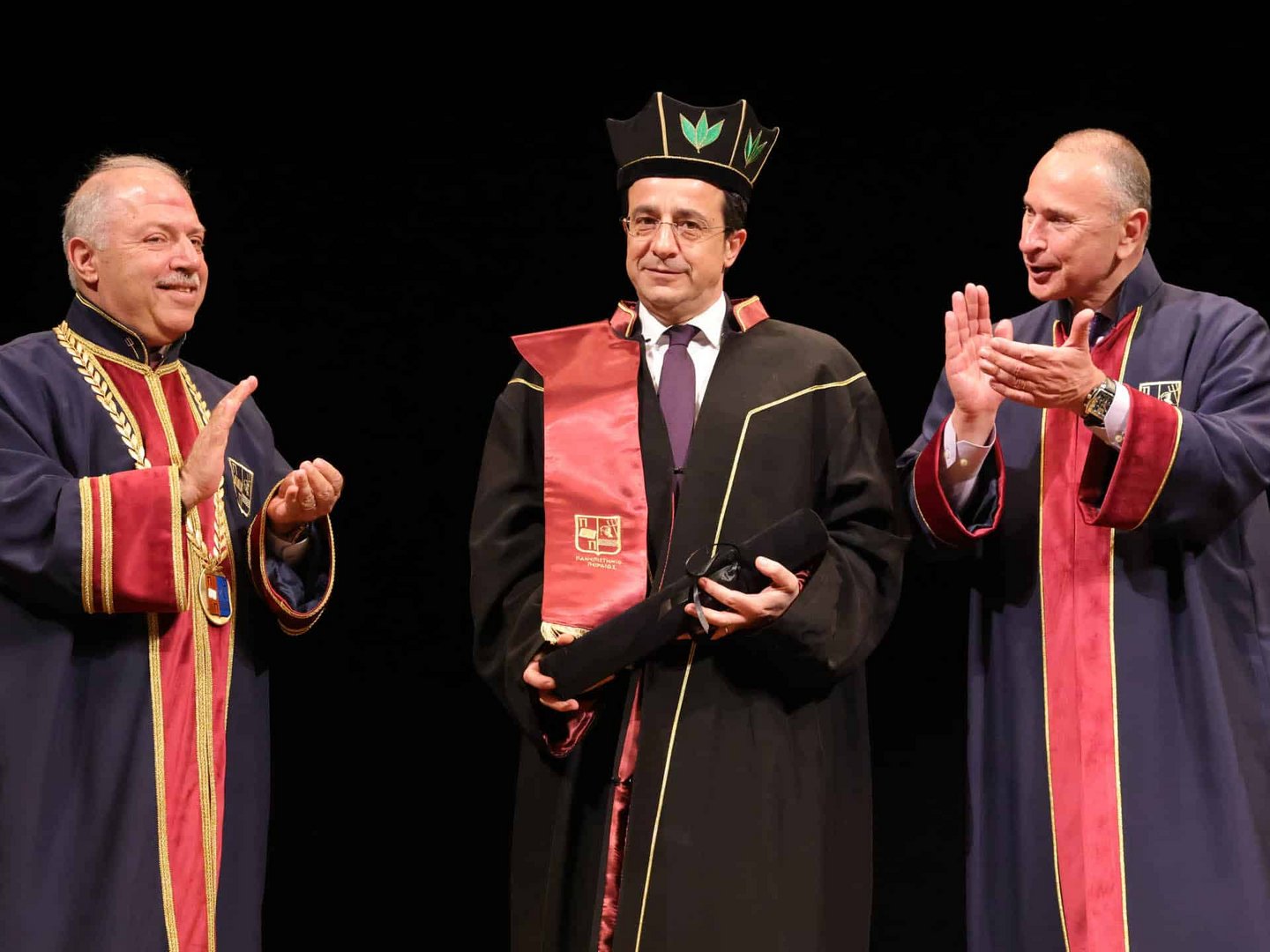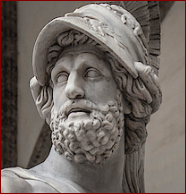IN THE end, Prez Nik II bowed to public pressure and rather belatedly obeyed the law about the publication of contributors to election campaign. On Thursday, two weeks after the deadline stipulated by the election law, he submitted the names of all contributors to his election campaign as well as the amounts he received.
He had filed accounts on the deadline set by law, of total revenue and expenditure of his campaign, without any other details. On Wednesday at the House institutions committee, it became apparent that our prez was blatantly violating the law by not providing detailed information about the donors of his campaign, so on Thursday he published a full list.
From what we know, he was not issued the €500 fine for failing to submit the information on time plus the additional €50 for every additional day after the deadline. It is a good thing that the Unit for Overseeing the Ethics of the Presidential Palace, which he promised to establish, has not been set up yet, because he would have got in big trouble for disregarding the election law.
I suspect the Unit will only oversee the cleaners, gardeners, waiters, and handymen of the palace, who are the most likely to behave unethically in the performance of their duties.
WHEN he announced his candidacy Nik II made us all laugh by saying he would finance his election campaign through ‘crowdfunding’.
Some 800 grand was given by businesses and €368,000 by businessmen paying as individuals. Businessman Constantinos Cleanthous gave more than half of this (€198,500), almost twice as much as all crowd funders put together. The top contributor was the Columbia Group of Companies, which gave 200 grand, because it has always been committed to Kyproulla having the president it deserves.
A few weeks before the election, asked in an interview with Omega TV about the funding of his campaign, Nik II said, “I refused to take money from businesspeople either from abroad or in cases there was the slightest doubt that any shadows would be created.”
He added: “A significant portion (of the funding) is from the expatriate communities of Britain and the US, and I am proud they support my candidacy; another part is from the unprecedented procedure for Cyprus of people donating via the website…”
Contributions by the members of the expat communities of the US and UK plus donations via the website amounted to €108,000, which was 10 per cent of total receipts, a very significant portion.
IN THE SAME interview, he said there were donations “from businesspeople, friends whom I know for many years, and they have nothing to gain from Nikos Christodoulides.” But they may have something to gain from the president of the republic.
Not all businesspeople are like the owners of the Columbia Group of Companies, who are ready to pay a lot of moolah just for Kyproulla to have a capable prez. The idea that Cypriot businessmen would part with their money, to back a politician, without expecting anything in exchange, belongs to the realm of science fiction.
Among the 90 companies donating money there were three quarrying businesses, which need state licences to open quarries. Were the owners of these businesses friends of many years of the prez who had nothing to gain from funding his campaign?
Most probably, but it might be a good idea for the Unit for Overseeing the Ethics of the Presidential Palace to monitor the situation – if it is ever set up.
WHEN the unit is set up, it will be run by the Deputy Minister to the President Irini Piki, who is the enforcer of the government. A very close friend of the first lady, Philippa Karsera Christodoulidou (PKC), with whom they often holiday together, Piki is said to run a very tight ship as the designated coordinator of the government.
One of her first directives was to ministers, instructing them to say nothing in public without first clearing it with her. Her micro-managing, which must have the blessing of her koumera, PKC, does not stop there. Ministers have also been instructed to inform her about every meeting they have and to take notes on what was discussed.
In her first interview, last March, the government enforcer said that she was ready to “clash with the establishments,” which seemed a bit far-fetched coming from someone who has worked for the country’s most powerful establishment – the civil service – for 25 years.
DIFFICULT to understand the shock-horror with which the media covered the news about the Turkish Cypriot businessman buying three hotels in the fenced off area of Famagusta from their Greek Cypriot owners, who have overnight become nominees for the title of national traitors.
The story was published in the Turkish Cypriot newspaper Yeni Bakis, which also reported that the businessman had also bought two floors of an apartment block in which he planned to house the hotel staff. The paper also claimed the republic’s ministry of interior had ratified the sales agreement and produced copies of documents with stamps of the republic.
Although the buyer was not named, the hotels were, thus making it easier to identify the traitors, who have entered a deal with the occupier, thus undermining our unyielding struggle for liberation, by which Turkish Cypriots can take over Greek Cypriot properties in the occupied area for free, thus allowing us to preserve our victimhood.
Tass news agency reported that no transaction contract was submitted to the Lands and Surveys Department, but why would it? If it were, I would not put it past the department to charge the sellers capital gains tax, based on post-1974 prices, which for properties in the fenced area of Famagusta was zero.
THE NEWS had come before the celebrations for the 19th anniversary of the glorious rejection of the Annan plan, marked last Monday, had even died down. This was the referendum that offered the return of Famagusta, Morphou and dozens of villages to the Greek Cypriots and we voted that the Turks should keep them, because we did not want them back.
Can anyone blame the owners of the hotels for trying to make some money out of properties that lay in ruins, and every time there was an opportunity of having them returned, Paphites, Limassolians and Ayia Napaites fought against it in order to protect their own financial interests?
We may have given Famagusta to the Turks for good, but we will always cherish the glorious ‘no’ of the 2004 referendum, when we voted with our pocket, as our finest moment as a country.
ANOTHER meeting was held at the presidential palace to deal with the issue of sanctions last week. This time the guests were representatives of the Bar Association, the accountants’ association and the Cyprus Securities and Exchange Commission.
Before the start of the meeting, the Prez said that anyone present who had a conflict of interest should leave. Nobody left. The Prez meanwhile showcased his talent for putting a positive spin on things, saying that “we must use this opportunity, we must view this as an opportunity to get this issue over with, once and for all.”
It is only the Cyprob opportunities that we never fail to miss.
A GROUP of friends that regularly eat out decided last weekend to go to the Nicosia restaurant, Mayiopoulla, which is owned by the US-sanctioned lawyer Christodoulos Vassiliades. One of them called and booked a table.
An hour later someone from the restaurant called him to inform him that the restaurant did not accept payment by credit card, and the group would have to pay in cash. He cancelled the booking. Credit card payment would go into the owner’s bank account, which has been frozen, so the restaurant has no choice but to accept only cash in order to stay in operation. It may also accept barter arrangements.







Click here to change your cookie preferences